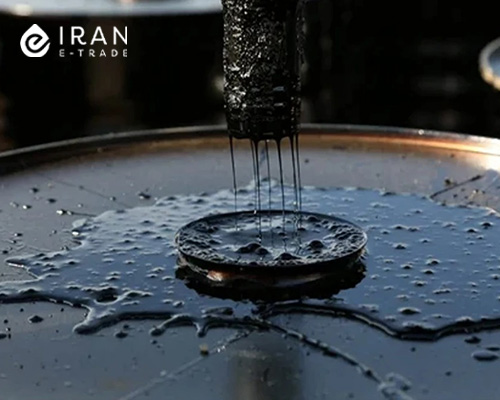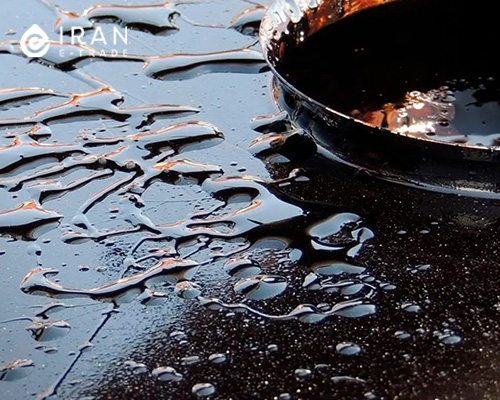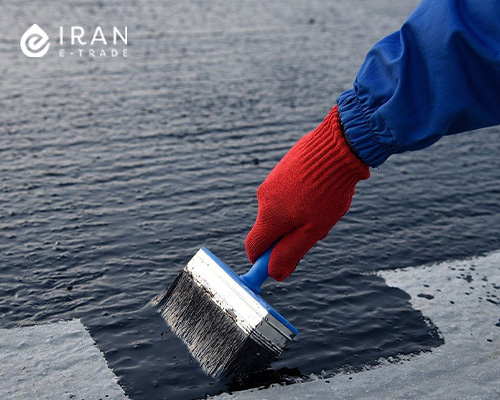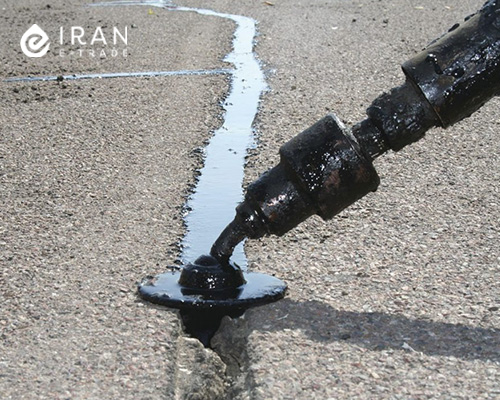What is Soft Bitumen: Applications in Industry + Comparison with Hard Bitumen
Soft bitumen is a type of bitumen that, due to its low viscosity and high flexibility, can be used at lower temperatures than hard bitumen. It is derived from petroleum products and has many uses in industries such as road construction and waterproofing because of its adhesive and waterproof properties. This bitumen is particularly suitable for use in cold climates and projects that require greater flexibility. Soft asphalt is produced in various forms, including emulsion bitumen, blown bitumen, and bituminous mixtures, each with its unique characteristics and applications. Therefore, in this article from IranETrade, we will further discuss the specifications and applications of soft asphalt.
What is Soft Bitumen?
Soft asphalt is a type of bitumen that becomes liquid at lower temperatures compared to standard bitumen products, making it more flexible. Due to its high adhesion and flexibility, this bitumen is suitable for projects that require resistance to temperature fluctuations and pressure changes.
Soft bitumen typically performs better at lower temperatures and is designed for regions with cold climates. It easily blends with other materials and is used in asphalt production and protective coatings. Also due to its unique molecular structure, it effectively resists cracking caused by temperature fluctuations. In this IranETrade blog post, a specialized source for bitumen pricing, we will further explore this topic.
(Click to know the types of bitumen.)

Types of Soft Bitumen
Soft bitumen has three main types: bitumen emulsion, blown bitumen, and bituminous mixture and each has its unique properties and applications. Below, we will discuss them in more detail.
1. Bitumen Emulsion
Soft bitumen emulsion is produced by adding water and an emulsifier. Due to its ease of use and less need for heating, this type of bitumen has many applications in road construction projects and producing cold asphalt.
2. Blown Bitumen
Soft-blown bitumen is produced by passing hot air through molten bitumen. This process enhances soft bitumen’s heat resistance and improves its adhesive properties. Blown bitumen has wide usage in waterproofing and production of industrial products.
3. Cutback Bitumen
Cutback bitumen is produced by mixing bitumen with petroleum solvents. This type of soft bitumen dries quickly and is good for use on surfaces that require quick coverage.

Features and Technical Specifications of Soft Bitumen
Each type of bitumen has its characteristics and specifications. Petroleum-based bitumen products generally include cutback bitumen, bitumen emulsion, and penetration-grade bitumen. The penetration grade of soft bitumen typically ranges between 60 to 300, which makes it highly valued for strong adhesion and water resistance. Also, another key feature of soft asphalt is its high resistance to cold temperatures. In general, the main features and specifications of soft asphalt include the following:
- Low Viscosity: Usable at lower temperatures
- High Flexibility: Resistant to cracking
- Strong Adhesion: Ensures a firm bond with other materials
- Thermal Resistance: Maintains properties under varying temperatures
(Click to learn about MC bitumen.)

Applications of Soft Bitumen
Soft bitumen has specific applications because of its characteristics. Some of its most important uses include:
- Excellent adhesion and water resistance: This makes it suitable for waterproofing.
- Road construction: Used as an adhesive in both cold and hot asphalt.
- Waterproofing in buildings and industrial structures: Prevents water absorption.
- Protection of metal and concrete surfaces: Guards against corrosion.
- Use in manufacturing industries: As a raw material for producing bituminous products like roofing felt.
- Fuel for industrial furnaces.
- Application in oil and gas industries: Prevents corrosion and decay in pipelines.
- As an additive in plastic parts.
- Fire retardant in safety material production.
- In the automotive industry: Used in tyre production and as a lubricant.

Difference Between Soft and Hard Bitumen
The main difference between soft bitumen and hard bitumen is in their physical properties and applications. These two types of bitumen have different softening points, flexibility, and temperature resistance, which we will explain further.
- Viscosity or Softening Point: Soft asphalt has lower viscosity compared to hard bitumen. This trait makes soft asphalt suitable for use in cold temperatures, whereas hard bitumen performs better at higher temperatures.
- Flexibility: Soft asphalt is more flexible and withstands temperature fluctuations better, especially in cold and freezing regions. On the other hand, hard bitumen is more resistant to pressure and high temperatures.
- Application: Soft asphalt is suitable for use in cold regions for waterproofing and asphalt coatings. However, hard bitumen is mainly used in tropical regions for airport runways and structures exposed to direct sunlight.
(For more information about The Prime Coat And Tack Coat Difference, see the blog post.)
Price of Soft Bitumen
(Click to find out about the online bitumen price.)
The price of soft bitumen depends on various factors such as bitumen type, purity level, softening point, viscosity, solubility, flammability, and other characteristics. Additionally, fluctuations in the oil market, exchange rates, import and export volumes, and supply and demand can also affect its final price. Therefore, for exact pricing details, you can contact our team at Iran ETrade.
Purchasing Soft Bitumen
As mentioned before, various factors influence the pricing of soft bitumen which are essential to consider when purchasing this bitumen. Therefore, make sure to evaluate the quality, safety, price, and intended application of the bitumen before its purchase. For detailed information, you can contact the Iran ETrade team.

- Petroleum Products and Petroleum Derivatives: Introduction + Uses
- Oil Refineries in Iran: Complete List + Comparison
- Gasoline Producing Refineries in Iran: 12 Major Refineries
- Largest Oil Producers in the World: The Top 13 Countries...
- The Largest Bitumen Refineries In The World: Top 20 Refineries...
- What Is An Oil Lubricant: Types, Applications + Production









